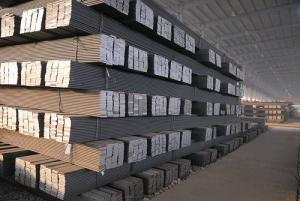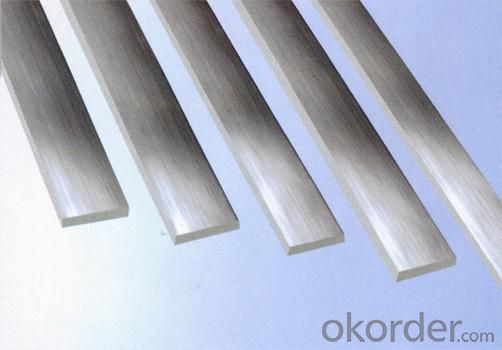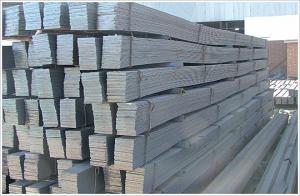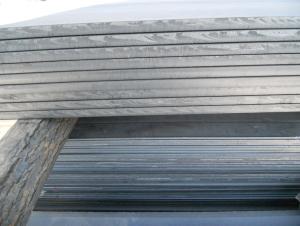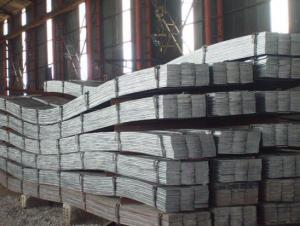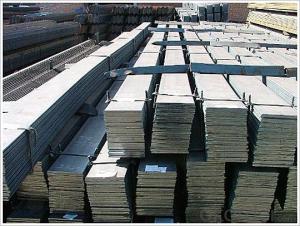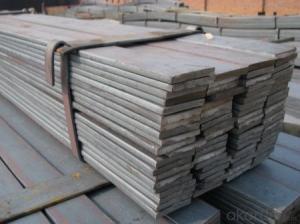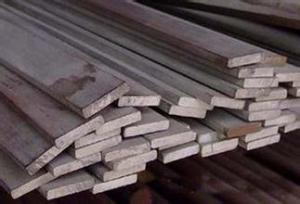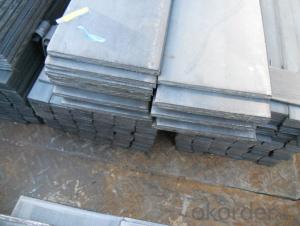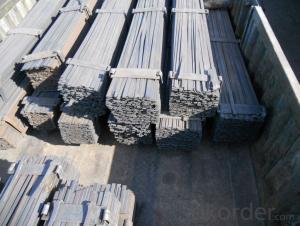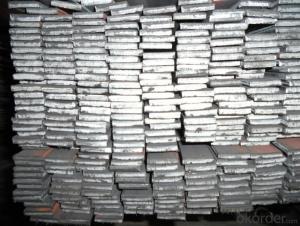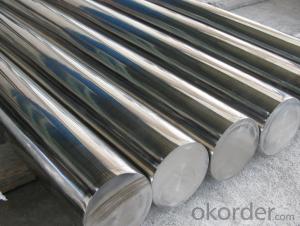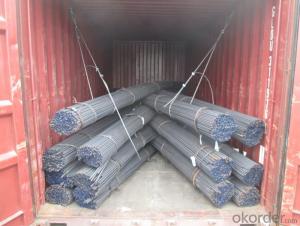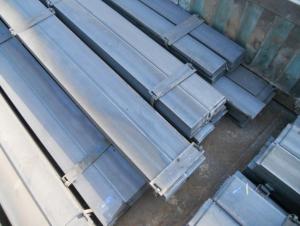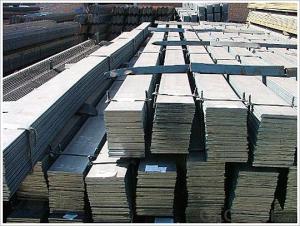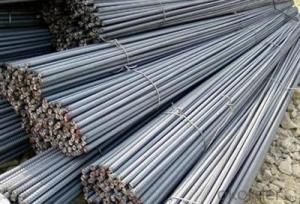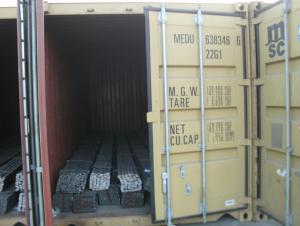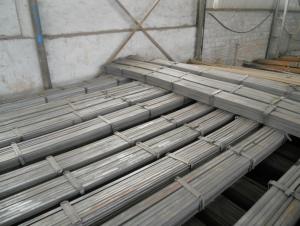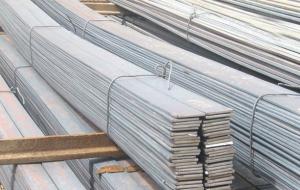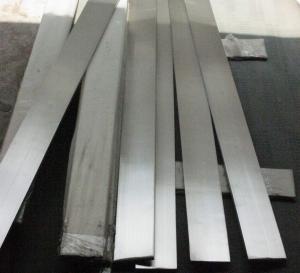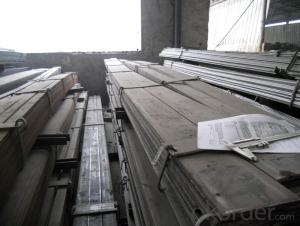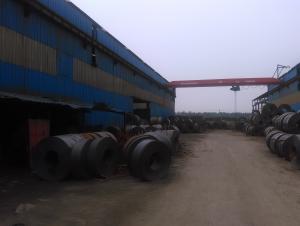JIS G3101 steel flat for construction with good
- Loading Port:
- Tianjin
- Payment Terms:
- TT OR LC
- Min Order Qty:
- 25 m.t.
- Supply Capability:
- 10000 m.t./month
OKorder Service Pledge
OKorder Financial Service
You Might Also Like
Product Description:
Specifications of MS Channel:
1.We supply high quality MS Channel at reasonable price, including Chinese standard, Japanese standard and so on.
Standard | GB/JIS |
Material Grade | Q235,SS400 |
Technique: | Hot Rolled |
Sizes as per chinese standard: | 50*37*4.5mm - 300*89*11.5mm |
Sizes as per japanese standard: | 50*25*3mm – 200*80*7.5mm |
Length: | 6meter, 9meter, 12meter |
Note: 1.we are also competent to provide our customers other MS Channel based on other sizes according to customer’s requirements.
2. The length of our ms channel could be cut into other meters as per customer’s requirements. For example, the channel in 6meters could be cut into 5.8meters in order to be fit in the 20ft container.
2. The detailed sections of MS Channel as per GB standard.are shown in the table-1:
GB U CHANNEL | Standard | Sectional | Dimension |
| Mass: |
(mm) | (mm) | (mm) | (mm) | ||
50X37 | 50 | 37 | 4.50 | 7.0 | 5.438 |
63X40 | 63 | 40 | 4.80 | 7.5 | 6.634 |
80x43 | 80 | 43 | 5.00 | 8.0 | 8.045 |
100x48 | 100 | 48 | 5.30 | 8.5 | 10.007 |
120x53 | 120 | 53 | 5.50 | 9.0 | 12.059 |
140x58 | 140 | 58 | 6.00 | 9.5 | 14.535 |
140x60 | 140 | 60 | 8.00 | 9.5 | 16.733 |
160x63 | 160 | 63 | 6.50 | 10.0 | 17.240 |
160x65 | 160 | 65 | 8.50 | 10.0 | 19.752 |
180x68 | 180 | 68 | 7.00 | 10.5 | 20.174 |
180x70 | 180 | 70 | 9.00 | 10.5 | 23.000 |
200x73 | 200 | 73 | 7.00 | 11.0 | 22.637 |
200x75 | 200 | 75 | 9.00 | 11.0 | 25.777 |
220x77 | 220 | 77 | 7.00 | 11.5 | 24.999 |
220x79 | 220 | 79 | 9.00 | 11.5 | 28.453 |
250x78 | 250 | 78 | 7.00 | 12.0 | 27.410 |
250x80 | 250 | 80 | 9.00 | 12.0 | 31.335 |
250x82 | 250 | 82 | 11.00 | 12.0 | 35.260 |
280x82 | 280 | 82 | 7.50 | 12.5 | 31.427 |
280x84 | 280 | 84 | 9.50 | 12.5 | 35.823 |
280x86 | 280 | 86 | 11.50 | 12.5 | 40.219 |
300x85 | 300 | 85 | 7.50 | 13.5 | 34.463 |
300x87 | 300 | 87 | 9.50 | 13.5 | 39.173 |
300x89 | 300 | 89 | 11.50 | 13.5 | 43.883 |
Table-1
3. The chemical composition of HR Channel Steel according to Q235B is shown in Table-2.
Alloy No | Grade | Element(%) | ||||
C | Mn | S | P | Si | ||
Q235 | B | 0.12-0.20 | 0.3-0.7 | ≦0.045 | ≦0.045 | ≦0.3 |
Table-2
Note: we are able to present our customers relevant SGS test report for chemical composition of HR Channel Steel.
4. The mechanical property of HR Channel Steel according to Q235B is shown in Table-3-1 and Table-3-2
Alloy No | Grade | Yielding Strength Point(Mpa) | |||
Thickness(mm) | |||||
≦16 | >16-40 | >40-60 | >60-100 | ||
≧ | |||||
Q235 | B | 235 | 225 | 215 | 205 |
Table-3-1
Alloy No | Grade | Tensile Strength(Mpa) | Elongation After Fracture(%) | |||
Thickness(mm) | ||||||
≦16 | >16-40 | >40-60 | >60-100 | |||
≧ | ||||||
G235 | B | 375-500 | 26 | 25 | 24 | 23 |
Table-3-2
Note: we are able to present our customers relevant SGS test report for mechanical property of MS Channel as customer’s request.
Applications of MS Channel:
The MS Channel can be applied to construction of warehouses, workshops, sport stadiums and car parks etc.The hot rolled channel steel belongs to carbon structural steel which is applied to in the field of construction and machinery.In details, the hot rolled channel steel is usually used for arch-itechtural structure, and they could be welded in order to support or hang a vari-ety of facilities. They are also usually used in combination with I beam. Generally,the hot rolled channel steel we supply must possess perfect welding property, riveting property and mechanical property and so on.
Package & Delivery of MS Channel:
1.The hot rolled channel steel will be packed in bundle with steel wire at each end of every bundle and color marking in order to help the customer to recognize his goods more easily at sight.
2. And the hot rolled channel steel could be loaded into 20ft or 40ft container, or by bulk cargo.If the weight of each bundle reaches more than 3.5 mt, the loading by break bulk cargo should be choosed.When the weight of each bundle reaches less than 3mt, the loading by container should be choosed.
3.As for the transportaion from mill to loading port, the truck will be usually used. And the maximum quantity for each truck is 40mt.
4.All in all, we could do in accordance with customer's request
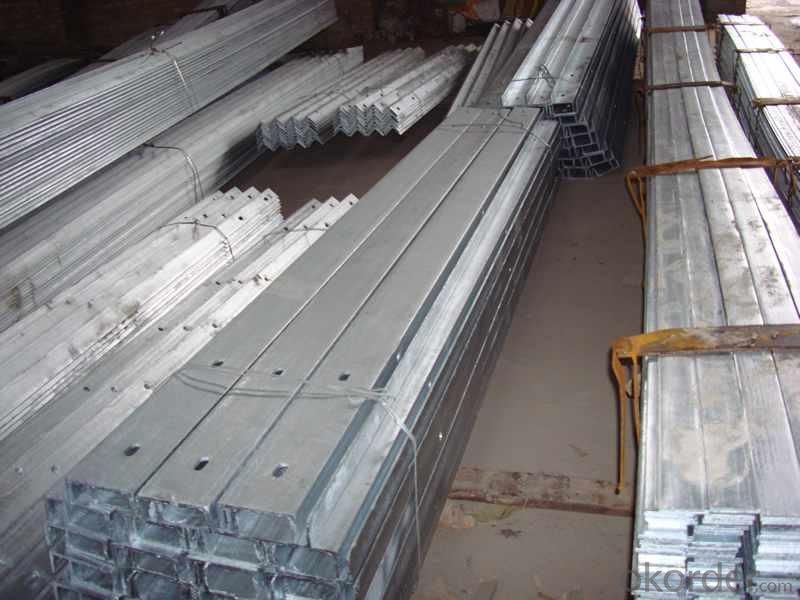
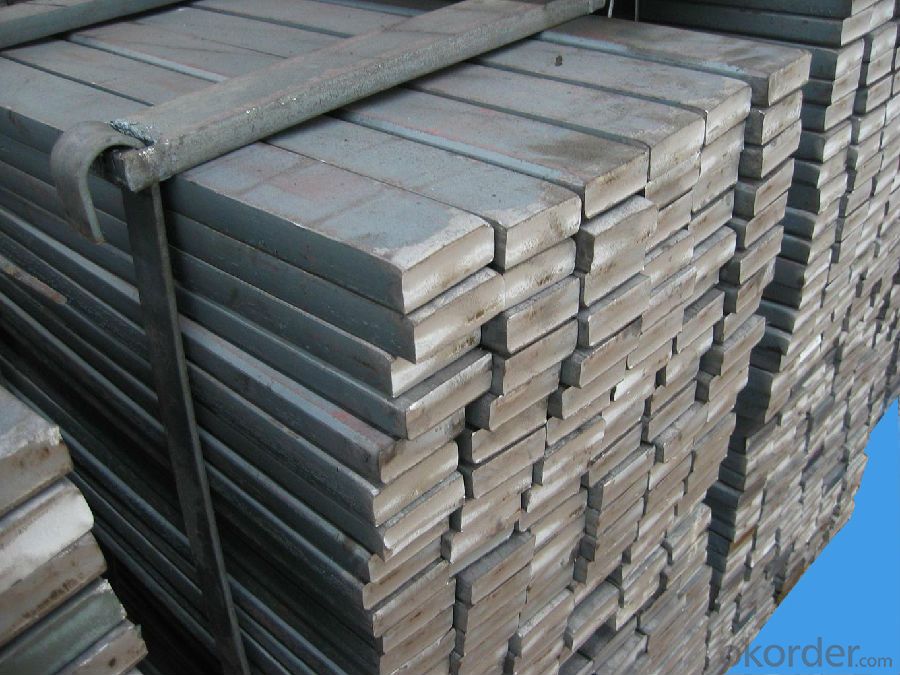
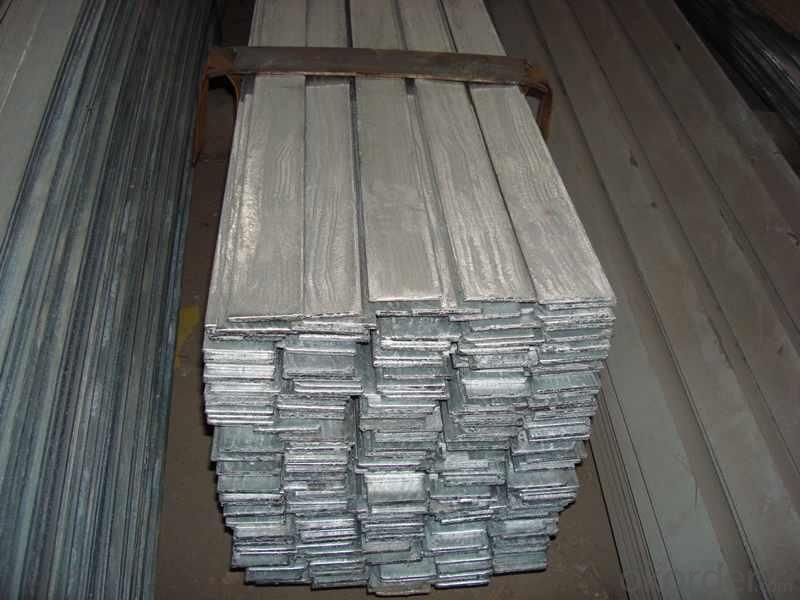
- Q: Can steel flat bars be used for making machinery parts or components?
- Yes, steel flat bars can indeed be used for making machinery parts or components. Steel is a versatile and durable material that is commonly used in the manufacturing industry, including for machinery and equipment. Steel flat bars can be easily shaped, cut, and welded to create various machinery parts and components, such as brackets, frames, supports, and even gears. The high strength and rigidity of steel make it an ideal choice for machinery applications, as it can withstand heavy loads, provide stability, and resist wear and tear. Additionally, steel can be machined and treated to enhance its properties, such as through heat treatment or surface coatings, further increasing its suitability for machinery parts and components.
- Q: Are steel flat bars suitable for making brackets or supports for fire protection systems?
- Yes, steel flat bars are suitable for making brackets or supports for fire protection systems. Steel is known for its strength and durability, making it a reliable material for constructing brackets or supports. Fire protection systems often require sturdy and heat-resistant components, and steel flat bars can meet these requirements. They can be easily fabricated and welded to create customized brackets or supports that can withstand the weight and stress of fire protection systems. Additionally, steel is non-combustible and has a high melting point, which further enhances its suitability for fire protection applications.
- Q: What are the different heat treatment processes for steel flat bars?
- There are several heat treatment processes that can be applied to steel flat bars to enhance their mechanical properties and improve their overall performance. Some of the commonly used heat treatment processes for steel flat bars include: 1. Annealing: This process involves heating the steel flat bar to a specific temperature and then slowly cooling it to room temperature. Annealing helps to relieve internal stresses, increase ductility, and improve machinability. 2. Normalizing: This heat treatment process involves heating the steel flat bar to a temperature above its critical range and then allowing it to cool in air. Normalizing helps to refine the grain structure, improve mechanical properties, and enhance the overall toughness of the steel. 3. Quenching and tempering: This two-step process involves rapid cooling, or quenching, the steel flat bar in a liquid medium, such as oil or water, to achieve high hardness. This is followed by tempering, which involves reheating the quenched steel to a lower temperature to reduce brittleness and improve toughness. 4. Case hardening: Also known as carburizing, this process involves adding carbon to the surface of the steel flat bar by heating it in a carbon-rich environment. Case hardening creates a hard outer layer while maintaining a softer and more ductile core, enhancing wear resistance and providing a tough surface. 5. Stress relieving: This heat treatment process is used to reduce residual stresses in the steel flat bar that may have accumulated during manufacturing or other processes. It involves heating the steel to a specific temperature and allowing it to cool slowly. Stress relieving helps to minimize distortion and improve dimensional stability. These heat treatment processes can be tailored to meet specific requirements and desired mechanical properties of the steel flat bars, making them suitable for a wide range of applications in various industries.
- Q: Can steel flat bars be used for making staircases or ramps?
- Yes, steel flat bars can be used for making staircases or ramps. Steel flat bars are commonly used in construction due to their strength and durability. They can provide a sturdy and stable framework for staircases and ramps, ensuring safety and structural integrity.
- Q: What are the standard sizes of steel flat bars?
- The standard sizes of steel flat bars can vary depending on the country and industry. However, common standard sizes typically range from 1/8 inch to 1 inch in thickness and 1/2 inch to 12 inches in width.
- Q: Are steel flat bars resistant to fire?
- Generally, steel flat bars are resistant to fire. Steel, being a non-combustible material, does not burn or aid in the spread of fire. Due to its high melting point and excellent heat resistance, steel is highly resistant to fire. As a result, steel flat bars are commonly used in construction, manufacturing, and industrial settings where fire resistance is necessary. However, it is important to remember that while steel itself is fire-resistant, other materials attached to or surrounding the steel bars may not be. Therefore, it is crucial to consider the entire system and ensure that all components are fire-resistant to provide maximum fire protection.
- Q: Can steel flat bars be used for tooling or machinery components?
- Yes, steel flat bars can be used for tooling or machinery components. Steel is a strong and durable material that can withstand high loads and provide stability and support. Flat bars can be easily shaped, machined, and welded to create various tooling or machinery components such as brackets, supports, frames, or base plates. Additionally, steel's resistance to rust and corrosion makes it suitable for use in different environments and conditions.
- Q: What is the typical hardness of steel flat bars?
- The typical hardness of steel flat bars can vary depending on the specific grade and heat treatment, but generally, they range from 40 to 65 on the Rockwell hardness scale. This hardness level ensures that steel flat bars are strong, durable, and able to withstand various mechanical stresses and impacts. However, it is important to note that hardness can be adjusted through different heat treatment processes to meet specific requirements for different applications.
- Q: Are steel flat bars suitable for architectural applications?
- Yes, steel flat bars are suitable for architectural applications. They are commonly used in various architectural designs due to their durability, strength, and versatility. Steel flat bars can be easily fabricated and shaped into different forms, making them ideal for creating unique architectural elements. They are often used for constructing frames, supports, and decorative features in buildings, bridges, and other structures. Additionally, steel flat bars have a high resistance to corrosion, which is crucial for maintaining the aesthetic appeal and longevity of architectural designs. Overall, steel flat bars offer a reliable and aesthetically pleasing option for architectural applications.
- Q: Are steel flat bars cost-effective compared to other materials?
- Steel flat bars are generally considered to be cost-effective compared to many other materials. This is due to several factors. Firstly, steel is a widely available and abundant material, which helps to keep its cost relatively low. Additionally, steel is highly durable and has a long lifespan, making it a cost-effective choice in the long run as it requires minimal maintenance and replacement. Steel also has excellent strength-to-weight ratio, meaning that it can withstand heavy loads without being excessively heavy itself. This can lead to cost savings in transportation and installation. Furthermore, steel is highly versatile and can be easily fabricated into various shapes and sizes, including flat bars, which makes it suitable for a wide range of applications. Overall, steel flat bars are a cost-effective choice for many projects and industries.
Send your message to us
JIS G3101 steel flat for construction with good
- Loading Port:
- Tianjin
- Payment Terms:
- TT OR LC
- Min Order Qty:
- 25 m.t.
- Supply Capability:
- 10000 m.t./month
OKorder Service Pledge
OKorder Financial Service
Similar products
Hot products
Hot Searches
Related keywords
